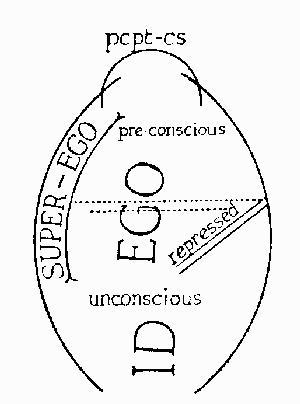In The Work of the Censor: Censorship in South Africa, J. M. Coetzee embarks upon a conceptual montage of South African censorship, predominantly stabilised by notions of human behaviour deemed relevant to the filtration of cultural/intellectual production. The trajectory of his prose leads the reader through themes of objectivity, offence, and protection, garnished with a climactic theoretical masquerade interpenetrating the idea of paranoia and its pertinence to the understanding of censorship and its motivations. This short academic note shall critique this latter segment of Coetzee’s essay.
Coetzee should be applauded for his thorough and profound analytical endeavour; particularly interesting is the paradoxical nature of his subject, the PAB. He uncovers complex dynamics within the discourse enveloping South African censorship, such as his interpretations of the undercurrents of blame and what he deemed the “most pervasive expression of paranoia” (Coetzee 200), displacement of offence. Although Coetzee exposes his speculations with clear intellectual rigour, some elements upon which he constructs his analyses are questionable.
Coetzee’s extrapolation of Freudian theory, linking the culmination of paranoia in the dynamics of censorship with a loss of libido, brews hints of illegitimacy in the ultimate message of his essay. Despite Freud’s extensive scholarly quotability, his theories were hugely subjective, and often unethical (Webster). That which cannot be falsified, which accounts for a large quantity of Freudian analysis, cannot be considered true natural practice (Popper 20). Ultimately, pragmatic method is compromised for pseudoscientific eloquence.
Coetzee later claims that censorship is somewhat a product of paranoia, and that reason, working by displacement through the assumption of responsibility and reception of offence by the censor, is rendered futile when paranoia is present. I suggest that reason, or better, rationality in the case of South African censorship is not hindered by paranoia. Paranoia, in fact, may not be present at all. The choice of the censors to censor ‘sensitive’ material may simply be an expression of their collective, subjective “Western Christian” rationality: thus, paranoia is not a precondition to censorship. (Coetzee 199, Winch)
The previous observations pertaining to Coetzee’s essay, Censorship in South Africa, primarily scrutinise the legitimacy of his factor relation. Using Freudian theory, although enticing, lacks the fundaments required for strong argumentation. Similarly, we see how reason is not necessarily threatened by paranoia, and how subjective rationality is sufficient to explain the censor’s motives.
Works Cited:
Coetzee, J. M. "The Work of the Censor: Censorship in South Africa." Giving Offense: Essays on Censorship. Chicago: U of Chicago, 1996. 185-203. Print.
Popper, Karl R. The Logic of Scientific Discovery. London and New York: Routlege Classics, n.d. Http://strangebeautiful.com/other-texts/popper-logic-scientific-discovery.pdf. Web. 22 Feb. 2015.
Webster, Richard. Why Freud Was Wrong: Sin, Science, and Psychoanalysis. New York, NY: Basic, 1995. Print.
Winch, Peter. "Understanding a Primitive Society." American Philosophical Quarterly. 4th ed. Vol. 1. N.p.: U of Illinois, 1964. 307-24. Print.

No comments:
Post a Comment